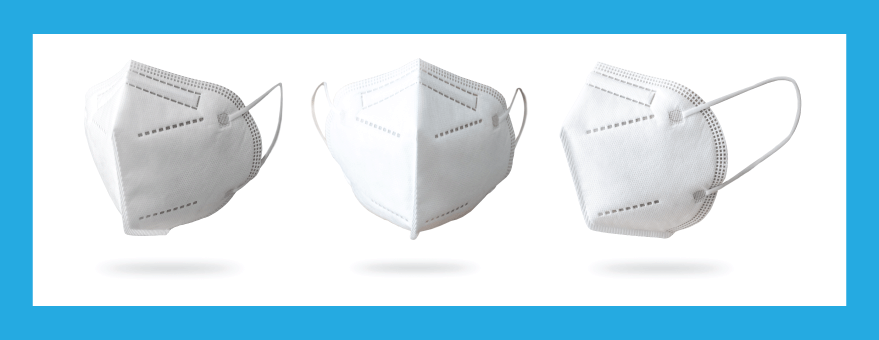
New HSE research has found that face masks with ear loops are no longer considered adequate examples of tight-fitting RPE. Below, we detail exactly what RPE is, and why the HSE have come to this recent decision.
What Does RPE Stand for in Health and Safety?
RPE stands for respiratory protective equipment. Depending on your job, your respiratory protective equipment at work can vary, but will usually come under one of two categories: respirators or breathing apparatus. Essentially, the former will purify the air that the wearer is breathing in, where as the latter will provide a separate clean air supply through a compressor.
For more information, examples of RPE, and advice as to when you might need it, have a look at our sister blog post: ‘What is Respiratory Protection, and How Do Our Signs Help?’
What Was the Problem?
The variety of ear loop respirators/masks has increased since the beginning of the Coronavirus pandemic, which claim to use FFP2 (these are filtering facepiece respirators, or disposable half masks).
The filter of these masks relies on having a direct seal to the wearer’s face. However, this seal cannot be achieved with masks that use ear loops to hold them in place, which is why the HSE has announced that they are no longer suitable for workers who need tight fitting RPE.
This also includes ‘snugger’ face masks, which use clips to hold oversized ear loops together at the back of the head.
Why Have the HSE Advised Against Ear Loop Masks in the Workplace?
As part of the process of using tight-fitting RPE in the workplace, a fit test should be carried out for each worker on an individual basis. However, the HSE found fit tests were not being passed in a majority of cases for ear loop respirators.
As a result, the HSE have advised against using ear loop masks in the workplace, because they cannot be certain that they are being used properly and safely.
Does This Include Standard Surgical Masks?
Fortunately, this finding does not affect surgical masks. Ear loops are only deemed inadequate for FFP2 respirators, whereas surgical face masks are under the category of FRSMs (fluid-resistant surgical face masks), and do not need to be tight fitting.
How Can Label Source Help?
At Label Source, we offer a range of respiratory protection signs to help make your workplace as safe as possible, including signage informing workers which RPE they should be using, and where.
You can also stay up to date on all the latest health and safety news by checking up on our blog or following us on Twitter.